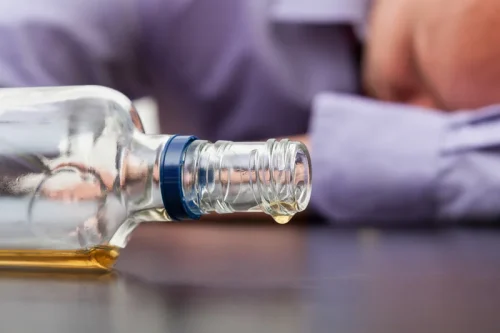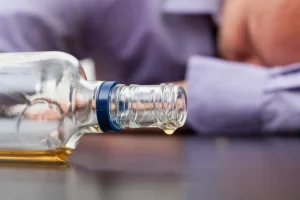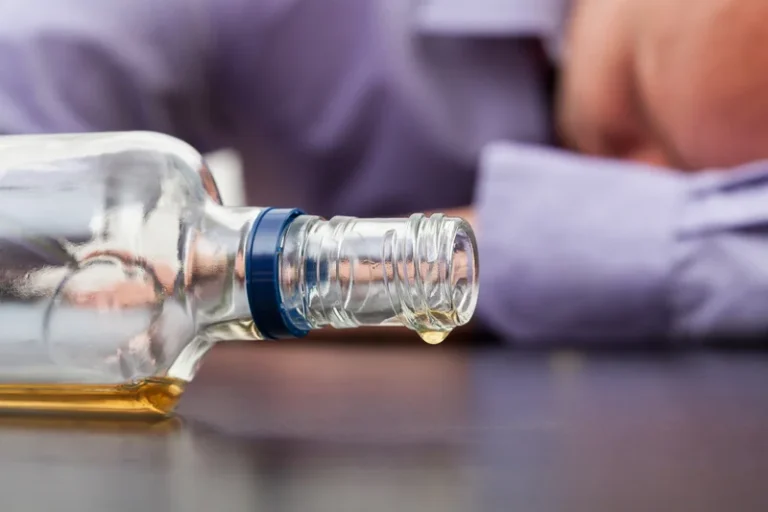
Alcohol levels in the blood can rise even after the last drink, as the gastrointestinal tract continues to absorb alcohol that was already consumed. If someone passes out from drinking, they need heroin addiction close monitoring and, in many cases, medical intervention. If you can’t wake the person or they exhibit slowed or erratic breathing, call emergency services immediately. Additionally, many more people have lasting long-term effects from alcohol poisoning, such as brain damage or injuries that occur while overdosing on alcohol.

Withdrawal
Know the danger signals and, if you suspect that someone has an alcohol overdose, call 911 for help immediately. Do not alcohol overdose wait for the person to have all the symptoms and be aware that a person who has passed out can die. Don’t play doctor—cold showers, hot coffee, and walking do not reverse the effects of alcohol overdose and could actually make things worse. Your genetics, family history of drinking, and other factors can all play a role.
Risk Factors for Alcohol Poisoning
Physiologically, once alcohol enters the bloodstream, it circulates throughout the body and affects every organ. The liver can process alcohol at a roughly constant rate—about one standard drink per hour for a healthy adult. If you consume more than your liver can metabolize, your blood alcohol concentration (BAC) rises.

Alcohol Poisoning
If you choose to drink, it’s a good idea to drink responsibly and stick to the guidelines for moderating drinking that are mentioned above. Treatment for alcohol intoxication, poisoning, and overdose typically takes place in the emergency care setting and is supportive, which means it is designed to help manage symptoms and avoid complications. Emergency medical staff will take steps to ensure a person’s medical stability and safety to help them recover and survive. A “standard drink” is considered to be 14 grams of pure alcohol, which is found in 12 ounces of beer, 5 ounces of wine, or 1.5 ounces of distilled spirits. However, moderate drinking varies depending on individual health factors such as body weight, tolerance, and any underlying medical conditions. The main causes of alcohol poisoning include binge drinking, drinking on an empty stomach, mixing alcohol with other depressants, and consuming alcohol quickly in large quantities.
- Alcohol in the stomach and intestine continues to enter the bloodstream and circulate throughout the body.
- This pattern of excessive alcohol intake rapidly elevates blood alcohol concentration (BAC) to dangerous levels, overwhelming the body’s ability to metabolize alcohol and leading to alcohol poisoning.
- Alcoholic drinks contain a form of alcohol known as ethyl alcohol or ethanol.
- In severe cases, imaging studies like CT scans are used to assess potential brain swelling or trauma.
- If you’re looking for treatment, please browse the site to reach out to treatment centers directly.
Too much alcohol in your bloodstream causes the areas of your brain that support breathing, heart rate, and other essential life-supporting functions to start to shut down. If you think someone is experiencing alcohol poisoning, seek emergency medical attention immediately. People who have not previously consumed alcohol have a minimal tolerance for the substance, and they can be dangerously vulnerable to alcohol poisoning. The risk of alcohol poisoning also depends on your size, your tolerance for alcohol, and the amount of food in https://ecosoberhouse.com/article/how-to-get-someone-into-rehab-guide-for-families/ your stomach. If you consume alcohol at a faster rate than your liver can process it, the level of alcohol in your blood will become higher and higher. Even after you stop drinking or pass out, your stomach and intestines will continue absorbing alcohol for quite some time.

Exceptions include fingerstick glucose to rule out hypoglycemia and sometimes tests to determine BAC. Confirmation by breath or blood alcohol levels is useful for legal purposes (eg, to document intoxication in drivers or employees who appear impaired). BAC levels do not always correlate to level of intoxication; for a given BAC level, chronic drinkers may have less impairment compared to a person who does not drink regularly. However, finding a low BAC in patients who have altered mental status is helpful because it expedites the search for an alternate cause. Attempting self-treatment is dangerous and leads to severe complications or death.
- The remedies for excessive vomiting after drinking alcohol are sipping water, resting, and avoiding further alcohol intake.
- At a BAC of 0.45 percent or above, a person is likely to die from alcohol intoxication.
- The person will be hospitalized until their vital signs return to normal.
- If someone is suspected of having alcohol poisoning, emergency medical services must be contacted without delay.
- As BAC increases, so do alcohol’s effects on a person’s body and motor functions.
- An alcohol overdose, or alcohol poisoning, is one health problem that can result from too much alcohol consumption.
How Long Does Alcohol Poisoning Last?
According to the World Health Organization (WHO), alcohol-related liver disease contributes to more than 2 million deaths globally each year. Alcohol poisoning is a medical emergency that kills six people in the U.S. each day. Also known as ethanol poisoning or alcohol overdose, alcohol poisoning is caused by using too much alcohol.

Treatment for alcohol intoxication involves supportive care while the body tries to process the alcohol. You must seek emergency medical treatment for a person who’s showing symptoms of alcohol poisoning. Get medical help straight away for signs and symptoms of alcohol overdose.
Alcohol poisoning treatment
- When you drink more than your body can handle, you might start wondering, “How long does alcohol poisoning last?
- Binge drinking is prevalent among adolescents and young adults, particularly in social settings.
- Alcoholic hallucinosis (hallucinations without other impairment of consciousness) follows abrupt cessation from prolonged, excessive alcohol use, usually within 12 to 24 hours.
- This approach helps clients find long-term recovery from alcohol abuse.
The appearance of external hyperlinks does not constitute endorsement by the Defense Department (DOD) of the linked web sites, or the information, products or services contained therein. For other than authorized activities such as military exchanges and Morale, Welfare and Recreation (MWR) sites, the DOD does not exercise any editorial control over the information you may find at these locations. By clicking “continue” below, please be aware that you are leaving the Own Your Limits website and entering a private organization’s website. You will then be subject to that website’s privacy policy and terms of service. Own Your Limits is a Defense Department (DOD) education campaign, aligned to the Defense Health Agency, for the U.S. military. The mission of the campaign is to help Service members learn to drink responsibly, if they choose to drink alcohol.